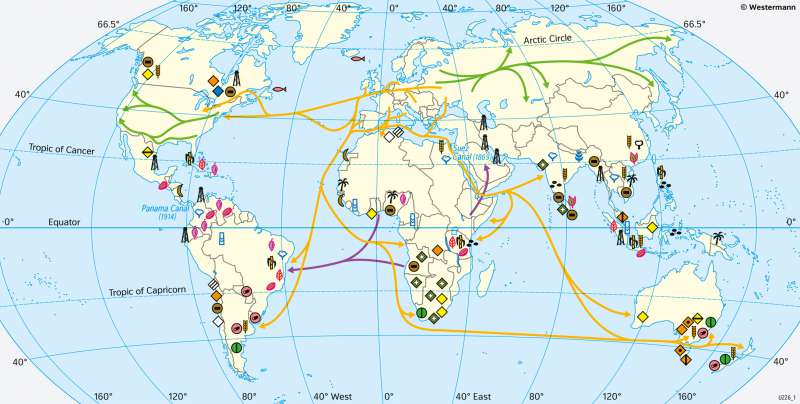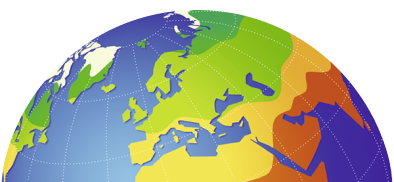The World - Trade goods and migration in the Age of Imperialism
The Age of Imperialism
978-3-14-100890-6 | Page 30 | Ill. 2

Economic exploitation
British India's foreign trade is exemplary of that of many exploited colonies: agricultural products such as cotton, jute, opium, and tea accounted for about 62 percent of exported goods in 1871 and still 37 percent in 1901. In addition, there was timber and mining products such as precious stones.
Imperialism and human rights violation
In most colonies - especially the African ones - the enforcement of economic and trade interests was associated with barbaric human rights violations. For Africa, the almost complete occupation by European powers was the worst break in the continent's history. All existing empires were crushed, their inhabitants exploited, enslaved, abused, or killed. Even more than in China or India, traditional ways of life fell victim to a Eurocentric concept of civilisation and the colonial political and economic interests of the invaders. The legacy of European colonialism was an economically plundered and politically destabilised continent.
Specific areas of exploitation
In Africa, coffee, cocoa, cotton, rubber, and palm oil were the most important agricultural commodities, along with gold, precious stones, copper, and saltpetre as mineral resources. In Asia, spices were particularly sought-after trade goods in addition to various agricultural products. At the beginning of the 20th century, Asia's oil deposits were also increasingly the focus of the colonial powers.




